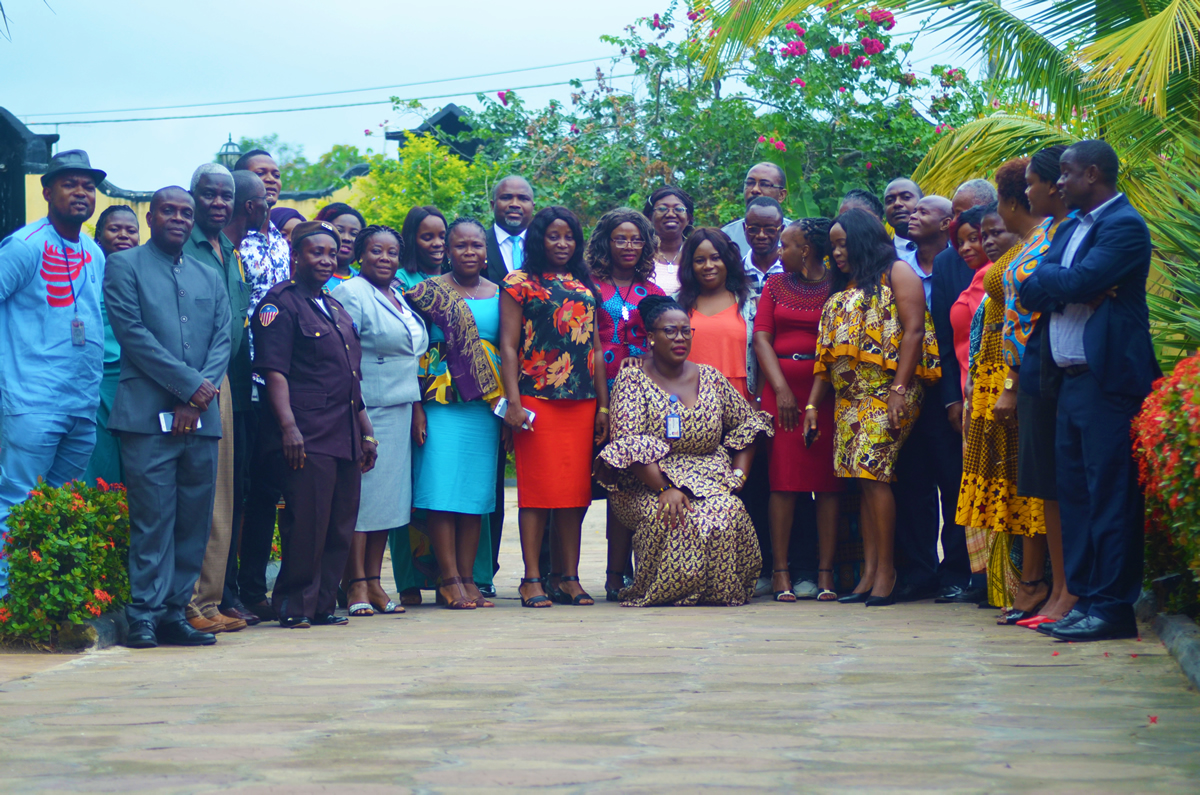Liberia is one of the poorest countries in the world, and its economy is extremely underdeveloped, largely due to the First Liberian Civil War in 1989-96. The World Bank’s recent information on the poverty rate in Liberia indicates that around 63% of the country lives on less than $1.90 per day. The alarming poverty rate in Liberia cripples growth and exacerbates other issues such as poor infrastructure, inadequate human and financial resources which are ubiquitous in the country. These challenges affect the delivery of essential services such as health, education, and other developmental programmes. In addition, the lack of both financial and human resources has hampered the country’s ability to meet its reporting obligations to the African Commission on Human and Peoples Rights (African Commission).
From 3 to 5 June 2019, the Women’s Rights Unit at the Centre of Human Rights, University of Pretoria hosted a three-day capacity building workshop on state reporting on the African Charter on Human and People’s Rights (African Charter) and the Protocol to the African Charter on Human and Peoples’ Rights on the Rights of Women in Africa (Maputo Protocol). The workshop was held in collaboration with the Ministry of Justice and the Ministry of Gender, Child and Social Protection in Liberia at the Golden Key Hotel in Monrovia.
The Centre was represented by Ms Patience Mungwari Mpani, Ms Ade Johnson and Ms Lydia Chibwe from the Women’s Rights Unit and Professor Michelo Hansungule, Professor of Human Rights Law at the Centre for Human Rights, University of Pretoria.
The primary objective of the state reporting workshop was to strengthen the capacity of Liberia as a state party to fulfil its reporting obligations in light of Article 62 of the African Charter and Article 26(1) of the Maputo Protocol.
The first day of the workshop commenced with an opening address delivered by the Deputy Minister of Justice, Mr Dixon Barnes. In his address, he expressed the delight of the state in taking part in the workshop as part of the country’s efforts and commitments to fulfilling its reporting obligations to the African Commission. Goodwill statements were made by representatives from the Independent National Commission on Human Rights of Liberia, Acting Chair, Mr Bartholomew B Colley and Commissioner Wilfred N Gray-Johnson and the United Nations Human Rights Country representative, Mr Uchenna Emelonye, the Chairperson of the Civil Society Council of Liberia, Ms Frances R Greaves and Ms Ghoma Karloweah from the United Nations Women Office.
Participants were drawn from various ministries and international organisations including the Ministry of Justice, Ministry of Gender, Child and Social Protection, Ministry of Education, Ministry of Foreign Affairs, National Human Rights Commission of Liberia and United Nations organisations. Non-governmental organisations including the Women Passion, Better Future for Women were also present. 31 participants attended the workshop.
Presentations on the first day introduced participants to the African regional system of human rights, the principles and substantive provisions of the African Charter and its Protocols and their applicability in Liberia. The presentations also focused on Liberia’s accountability in relation to international crimes under the Constitutive Act of the African Union. One the second day participants were introduced to the reporting guidelines issued by the African Commission on the African Charter and the Maputo Protocol. Additionally, the role of civil society and national human rights institutions in the state party reporting process was discussed.
Interesting discussions that ensued include issues of abortion and participation of women in key decision-making processes and access to opportunities. Some participants argued that abortion was contrary to the right of life which is a human right as articulated in Article 4 of the African Charter and whether this is contrary to Article 14(2)(c) of the Maputo Protocol which authorises medical abortion in cases of sexual assault, rape, incest, and where the continued pregnancy endangers the mental and physical health of the mother or the life of the foetus. Questions surrounding the meaning of life and when does life begin were discussed. In addition, arguments also centred on which life, if any, should be prioritised (that of the mother or the foetus). The discussions also extended to issues of choice and bodily integrity of women.
It was noted that women are poorly represented in key decision-making roles and that men dominated programmes, even those meant for women, and ended up making decisions on their behalf. Participants argued that women are constantly saddled with stereotypical gender roles of care, including cleaning up and making tea for their male counterparts in the workplace. In addition, the 2017 elections saw the use of propaganda on social media to tarnish the image of women candidates and discourage their political participation. This resulted in women taking only 9 out of 73 seats in parliament, one seat in the senate-house, 2 out of 19 ministerial positions and 10 out of 49 deputy minister positions.
The workshop ended with significant commitment expressed by participants to continue the process of drafting and submitting Liberia’s state party report to the African Commission and other overdue treaty body reports. The Centre will continue to provide technical support to Liberia as they develop a state report to the African Commission. This will include the placement of a Technical Assistant to work with the state party and host a series of workshops to draft and validate the report.
The Centre has launched a website on its state reporting project and contains more information on the state reporting process under the Maputo Protocol.
For more information, please contact:


